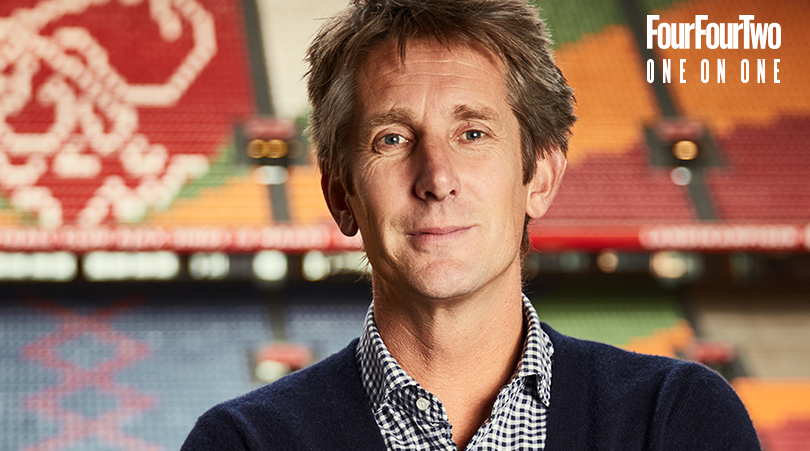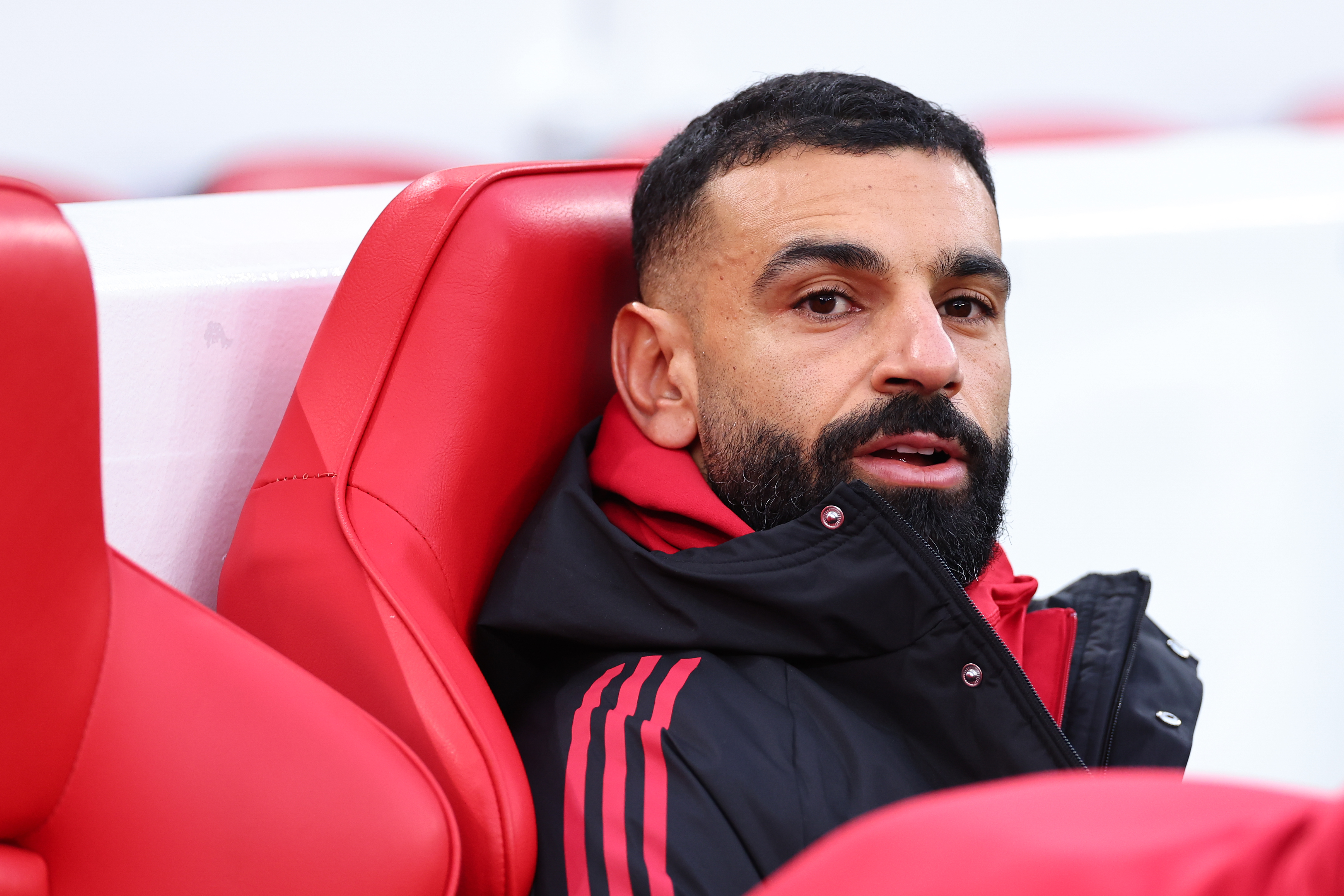The big interview: Bixente Lizarazu - "Alex Ferguson wanted to sign me... but it stopped very quickly"
Did he turn down a move to Old Trafford? Who was madder: Kahn or Effenberg? Why did he slap Lothar Matthaus? Your questions answered in August 2017…
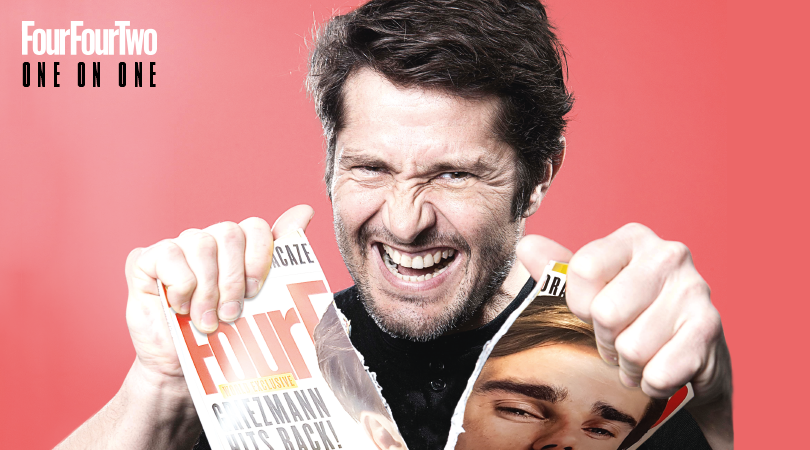
Bixente Lizarazu has just only arrived at FourFourTwo HQ, but already he is causing mayhem. First, he frantically rips up some magazines, then puts us in a disconcertingly sturdy headlock.
Normally, this would be a sign that the interview’s gone badly wrong – but with Lizarazu it’s different.
“I’m not a psychopath!” chuckles the World Cup winner, who’s in London as part of his role as an ambassador with Bayern Munich.
To be fair, we did ask the jiu-jitsu black belt to tear up an old issue or two for the photoshoot. The headlock was definitely all Bixente’s idea, though, as his sense of humour took over and he insisted on showing FFT a little sample of his martial arts skills. Thankfully, the interview with him is less painful…
Can you clear this one up: is your official name Bixente or Vincent?
Anthony Stevens, Hull
Bixente. I was born in the Basque part of France and my parents wanted to officially declare my name as Bixente. But the people in the administration there said no – at that time a Basque name wasn’t allowed and so they had to use the French translation, Vincent.
Everyone in the Basque country called me Bixente until I became famous in football and journalists started saying ‘Vincent Lizarazu puts in a cross’. I was like, ‘Vincent? Who is this guy? I don’t know him!’ It was never my name, so I got a lawyer to make it official that my name was Bixente, as my parents wanted. Today, my son is Tximista and daughter Uhaina, both Basque names.
The best features, fun and footballing quizzes, straight to your inbox every week.
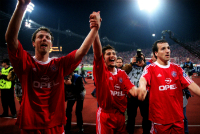
1988-96 Bordeaux
1996-97 Athletic Bilbao
1997-2004 Bayern Munich
2004 Marseille
2005-06 Bayern Munich
What was it like playing alongside Eric Cantona while you were at Bordeaux?
Ian Ross, Manchester
I didn't play with him for long, but he was no problem at all. I know what he did in England was famous – fantastic goals and also the problem with that fan. I saw what he said in FourFourTwo, that he should have hit the fan harder! There was nothing unusual at Bordeaux apart from a cup match that we played once: we had a penalty and it was so windy that day. The wind was against him, so he tried a Panenka and the ball never even reached the line!
Did Bordeaux’s run from the Intertoto Cup to the UEFA Cup final in 1995/96 help to earn you moves afterwards?
Steffen Reiter, Augsburg
Yes, I think it came from that – not the final against Bayern Munich, because in the second leg I had to go off injured, but from what we did in the UEFA Cup that season. Everybody in Europe saw us. Zinedine Zidane went to Juventus, Christophe Dugarry went to Milan and I went to Athletic Bilbao, then Bayern.
Just how good was Zinedine Zidane?
Theo Lecroix, Marseille
When Zizou first arrived at Bordeaux, he wasn’t in fantastic physical shape. It was hard for him to get through 90 minutes and he worked a lot on that. But he was a genius. In training he’d do things that were a little bit strange.
He didn’t have a classic technique, the things you learn at soccer schools. He had the technique from the street and movements that were impossible for everyone except him. Alone he could change a game and make a goal, but he played for the team as well. If you make a run three times and the ball is never coming, the third time you think, ‘F**k it, he is never giving me the ball.’ But it was never like that with Zidane – when you made a run he would always give you the ball, exactly two metres in front of you, perfectly timed.
He knew his team-mates wouldn't make that run for nothing, and when a player is thinking like that, everybody wants to run for him. When you had the ball in defence, you would always search for Zizou as you knew you’d never lose the ball with him, even if the pass was bad. It was always a good pass when it went to him. Playing with Zizou was so easy.
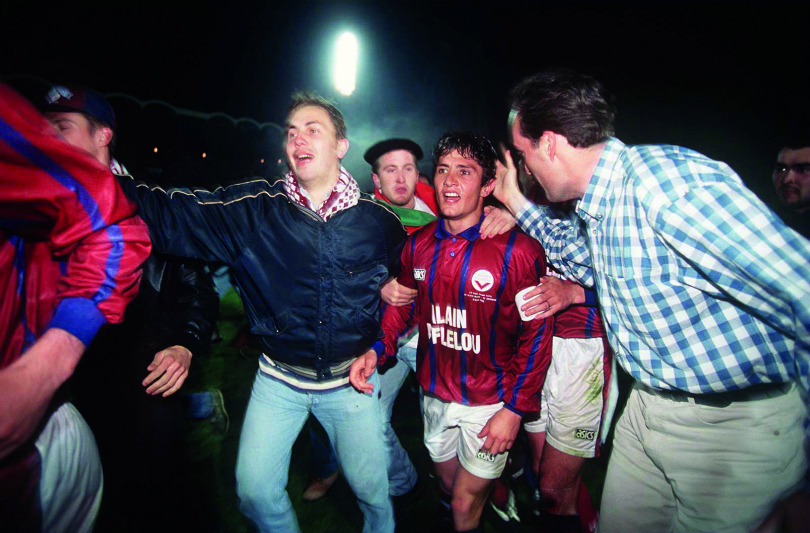
You were the first French player ever to sign for Athletic Bilbao. How proud are you to have represented a team who only recruit Basque footballers?
Jun Kaloustian, via Facebook
It’s difficult to speak about my year at Athletic Bilbao because it was the start of my injury problems. It was a football decision to go there, as Spanish football was what I watched when I was young – we lived on the border with Spain and I would often go and see Real Sociedad games. I wanted to experience playing football there, but other people wanted to talk about me being the first French player at Athletic Bilbao, not me. Then I was injured and it wasn’t possible for me to play my normal game for them, so it wasn’t really a fun season for me.
Do you feel more French or Basque?
Tom Grant, via Facebook
I feel French and Basque. In France you have some different places where there is a different culture. Corsica or Brittany isn’t the same as Paris, and the Basque country isn’t the same either. There are a few different things, but that’s great.
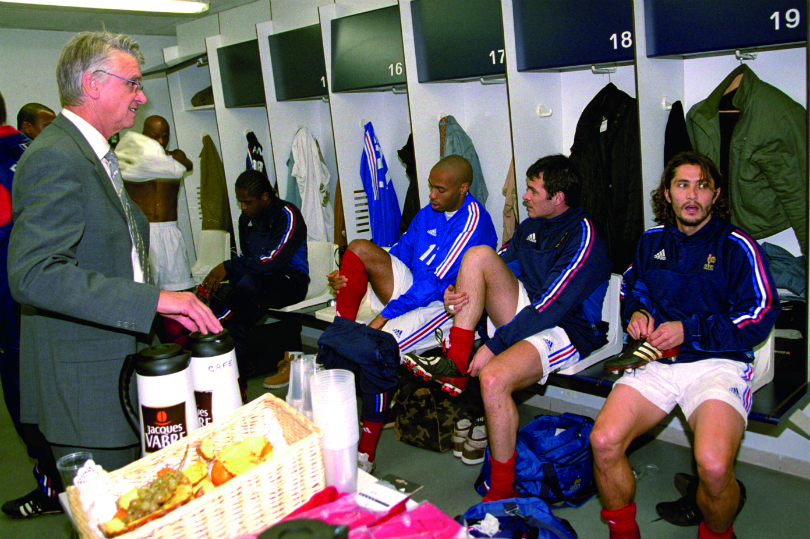
How important would you say Aime Jacquet was for your football career?
Julie Frayssinous, Rouen
I started as a professional with Aime Jacquet at Bordeaux – I played out on the left wing at first – and all of my best days with the national team were with him. He was the kind of coach you were ready to break your leg for, like Ottmar Hitzfeld at Bayern. I had a really good relationship with Jacquet, lots of talking, as I was a player who needed to understand things and chat to the trainer. I was interested in the tactics and what we did in training sessions.
Discussion was easy with him. He also helped me in an important moment for my career. I was still having problems with injuries during my first season at Bayern in 1997/98, and I lost all of my self-confidence. But Jacquet came to visit me in Munich and he said, “If you can come back 100 per cent fit, then you’ll be my left-back for the national team.”
That gave me the power to train really hard. I managed to get fit for the World Cup and I think I played a good tournament. In the same season, I'd gone through the worst moment of my career and become a world champion.
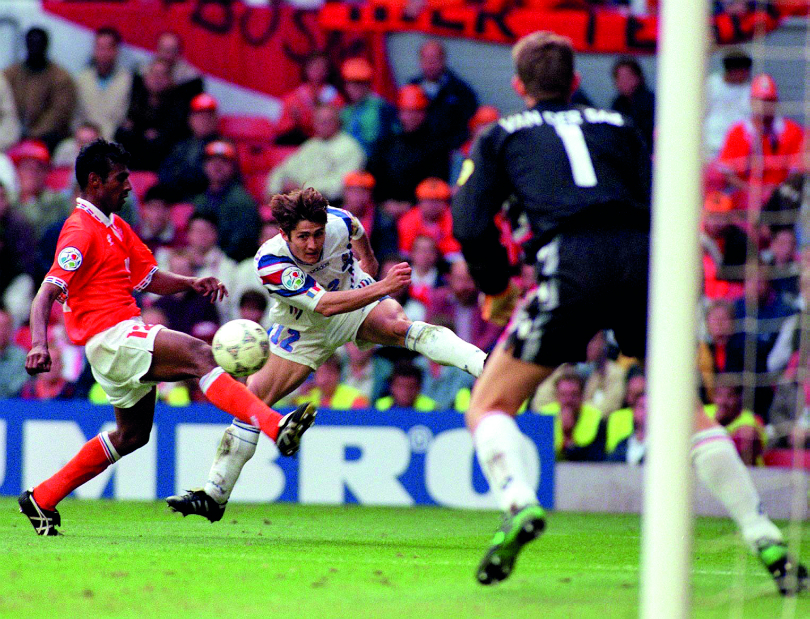
You reached the semi-finals of Euro 96 two years earlier but lost out to the Czech Republic at Old Trafford. Was it seen as a success or failure?
Danny Clarke, Stevenage
It gave us some confidence. We lost on penalties so we were close to reaching the final – it wasn’t because we weren’t good enough. It was the start of a new generation. David Ginola and Cantona weren’t playing any more, and Jacquet decided to give players like Zidane and Youri Djorkaeff the keys to the national team. Euro 96 was like training for the World Cup.
I wasn’t in the team for the first game of the tournament, but then I got in and that was the start for me. Even though I made my debut in 1992, the Euros was when I began to feel like an important player in the France team.
Did you go into the 1998 World Cup expecting to win it on home soil?
Jamie Frampton, London
We didn’t really know, it was impossible to say. We arrived at the World Cup very sure of our defensive qualities, but not overly sure about our offensive potential. But in the end, everyone was scoring – attackers, midfielders and defenders. Lilian Thuram scored two in the semis, Laurent Blanc scored, and I scored one against Saudi Arabia.
Scoring that goal at the World Cup felt amazing as I'd come so far from that f**king injury. It felt like a gift: ‘I give you a goal as you've had some bad moments, so now you need a little bit of sunshine back.’
You played alongside Lilian Thuram, Laurent Blanc and Marcel Desailly – how good was that France defence?
Andy Kearnley, Belper
With us four and Fabien Barthez playing in goal behind us we never lost, which is amazing. It was a great feeling to be unbeatable – it wasn’t only that we were strong individually, together we were much stronger. If I lost a tackle, Marcel would get back and make the tackle. If he lost a tackle, I would be there to help him. That defensive quality helped us to be world champions, but the midfield played a big part as well – a good defence is never just the back four and the keeper.
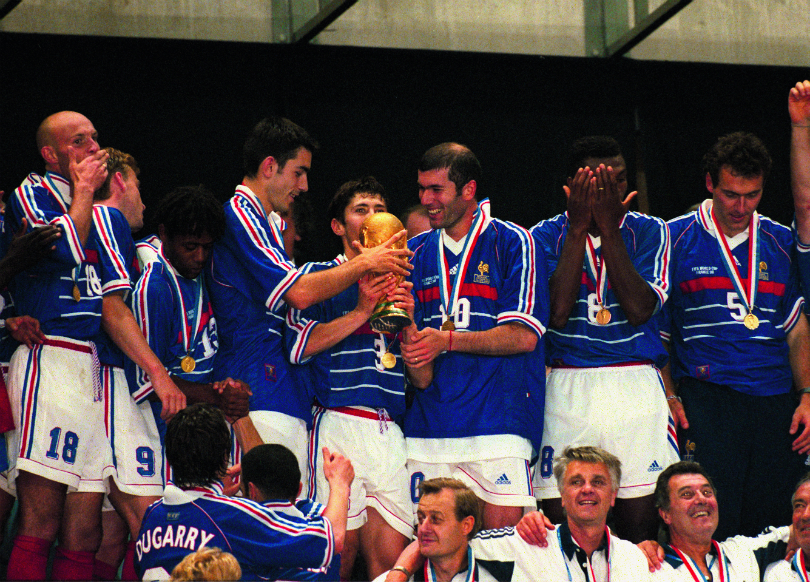
What did you think of Laurent Blanc kissing Fabien Barthez’s head before every match? A bit weird, wasn’t it?
James Meredith, Needham Market
It was funny! But it’s a bit like wearing the same socks or underwear – they had to keep doing it before every game and we wanted them to do it, as it was good luck. In football you start believing in such things, like if they don’t do it, we will lose!
What are your memories of the World Cup final against Brazil?
Thomas Barnes, Southampton
We were so relaxed, which is important for a game with that kind of pressure. My experiences taught me that more pressure means you should relax more; less pressure and you should put more aggression into the situation. Before the final it’s not necessary to say, ‘Let’s go guys, we've got to fight’. It’s better to make a few jokes and relax, rather than saying, ‘Tonight, I am playing the game of my life’. You know it is, but you’ll have a bad match if you say that too much. On the morning of the final we were all talking about Ronaldo, about how he played, and that we had to be so careful.
He was an amazing player – impossible to control – so we just started laughing about it, as we didn’t have any solution. But in the end we were mentally much better than Brazil and we controlled the match – it was the easiest game of the whole tournament for us, even though they had many fantastic players. When we went to receive the trophy I saw my father in the stands. He was crying, and I will always remember lifting the cup. Zizou handed me the cup, I lifted it up and then said, “F**k! I made it!” Nobody can ever take that away from me. You can never be an ex-World Cup winner. You stay a World Cup winner forever.
What did you think when a lot of French people started naming their babies Bixente after the World Cup?
Julien Delon, Reims
It was funny! And not only Bixente but Zinedine and Lilian, too. It was crazy after the World Cup, you can’t imagine it. When we went into a restaurant they’d often put on the music that people had played during the World Cup, Gloria Gaynor… [starts humming the opening bars of I Will Survive] Everyone would start singing it. For six months it was totally crazy.
The 1998 World Cup win was great, but could you have dreamed of then winning Euro 2000 two years later?
Freddie Norton, Carlisle
That was so amazing, winning the final against Italy with a golden goal as well. We played a fantastic competition and were a good offensive team, but Italy were great in the final, tactically. They nicked a goal and it was tough to come back against them. We were very lucky to find a solution in the end – thank you to Sylvain Wiltord and David Trezeguet!
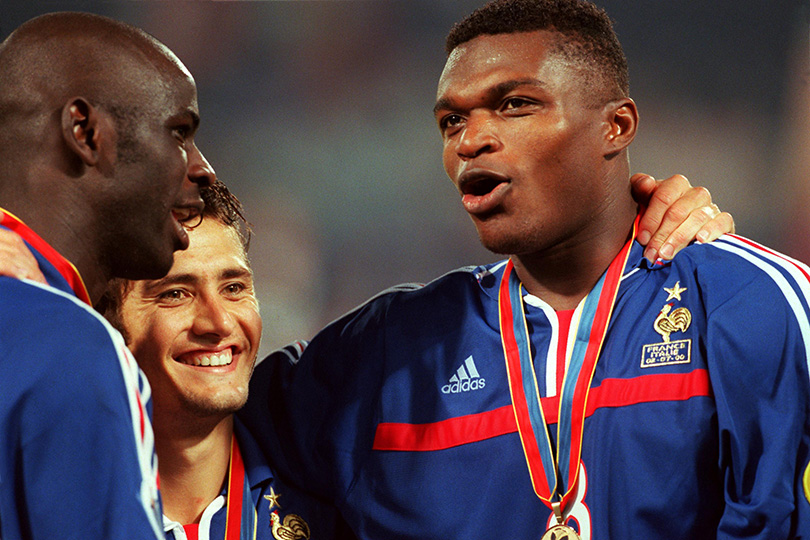
The team was very multi-cultural. Do you think that helped in some way?
Jerome Girault, Brussels
We weren't looking at that, and where we all came from. We were just friends. We didn’t look at the fact that one was from Martinique, one from Ghana, one from the Basque country. We were just friends, all speaking the same language, having fun and enjoying being together.
How hard was it for you to miss out on the 1999 Champions League Final?
Neil Burton, Stockport
It was very hard – I’d injured my knee playing for France, I was out for three months and I couldn’t be ready for the final. We were the better team in that final. I couldn’t do anything apart from go out onto the pitch after the game and help my friends who were crying. It was so terrible to see all of my team-mates in that state. That day gave us the power to go and win the Champions League two years later, I’m very sure about it. We took all of the frustration from 1999 and then used it to help us beat Valencia in the final at San Siro.
I couldn’t do anything apart from go out onto the pitch after the game and help my friends who were crying
How much pressure did you feel in the 2001 shootout against Valencia?
Matthias Herrmann, Munich
I wasn’t in the first five penalty-takers. I missed in the shootout against Italy in 1998 and said, “OK, I will never take a penalty again”. But then came that Champions League final and I chose to go, because after five penalties we were still level. I hit that penalty for Bayern with full power. It was a big emotion to score but it wasn’t over until Oliver Kahn made the winning save – an incredible moment. Oliver was 50 metres away but we ran like crazy. I think we were going quicker than Usain Bolt! It was a fantastic moment. I’ll always remember that.
You became the first player ever to be world and European champion for club and country at the same time. How bigan honour wasthat?
Ibrahim Ayyub, via Facebook
Yes, I was the first one ever to win those titles at the same time with the World Cup in 1998, the European Championship in 2000 and Champions League in 2001, followed by the Intercontinental Cup in Japan when Bayern beat Boca Juniors. At that point I’d won everything. It was incredible – I’d reached all of my goals. In 2001, we were fighting with Schalke for the Bundesliga and won the title in the last minute, and I was named the best left-back in the world, so that year really was something special. It was like the Everest – the second Everest of my career, because 1998 was also Everest.
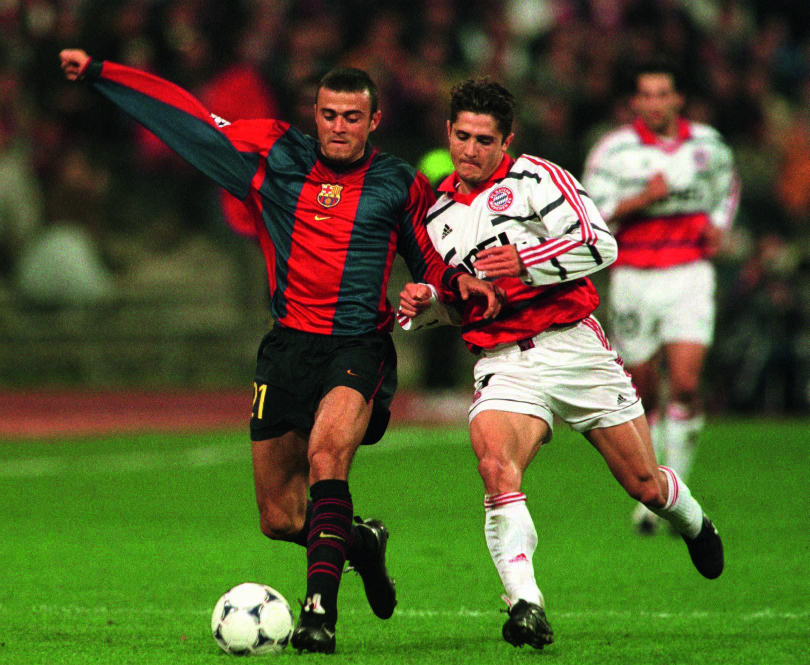
Who was the main character in that Bayern side: Kahn or Stefan Effenberg?
@rivaoul, via Twitter
Both. When you play with such players you are not afraid to go to war on the pitch. Maybe we didn’t have the talent of the Bayern team that did the Treble in 2013 – they were better technically – but mentally we were so strong and won six Bundesliga titles. When you have people on your team like Kahn, Effenberg, Jens Jeremies and Sammy Kuffour, we were very difficult to play.
Did you really slap Lothar Matthaus at training when you were at Bayern?
Oliver Bracken, Bielefeld
I shouldn’t have done that, although he did touch me first – I have to say that! I reacted but these things can happen and when I see Lothar we joke about it, and afterwards we had a beer. There are some moments when you’ve got to show that you're there and that you've got some character. It’s really important to show that in a team. I'm Basque and I’ve got character, just like Matthaus, but he was a fantastic player.
Did you ever have the opportunity to go and play in the Premier League?
@spursdab, via Twitter
I had the chance, I think in about 2001 or 2002, to go to Manchester United, but it stopped very quickly as Bayern said no. Alex Ferguson was keen to sign me and United had talks with Bayern, but Bayern said there was no question that I’d be leaving and so I was staying with them. I was very happy in Munich, but Manchester United did try.
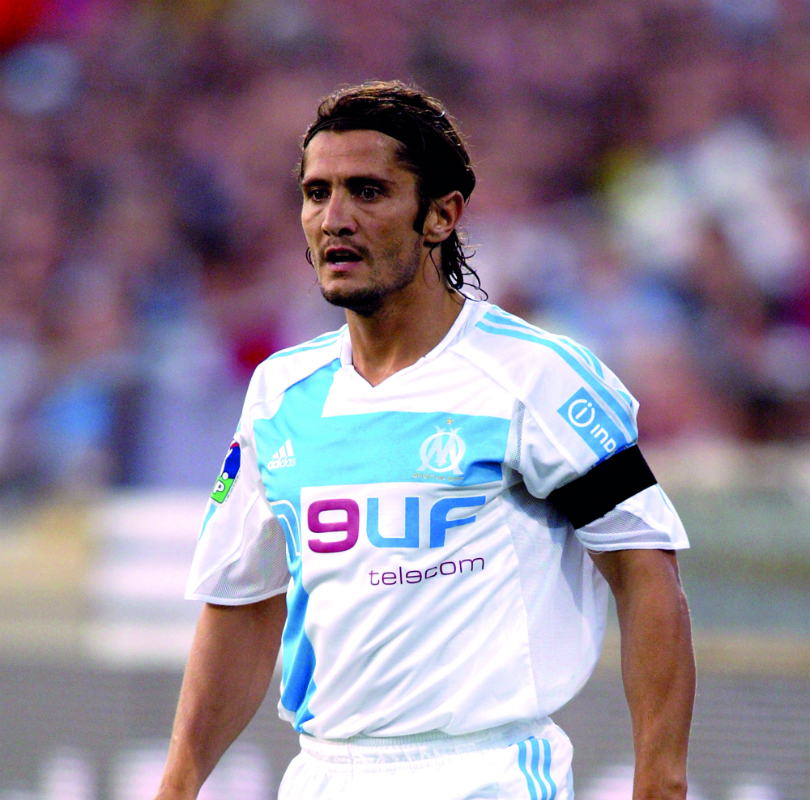
Was moving to Marseille in 2004 the biggest regret of your football career?
Benjamin Reynaud, via Twitter
If you don’t try anything, then you make no mistakes. When Ottmar Hitzfeld left Bayern, I thought maybe it was the end of my story there and it would be great to go back to France to finish my career. But when I went to Marseille there were a lot of problems. We had two different presidents and three coaches, so it was a moment when I didn’t like what was going on.
I had such a bad relationship with the last coach [Philippe Troussier] that I decided I couldn't continue like that. I didn’t want my job to be like that, so I chose to go back to Bayern Munich. What was quite funny was that I spent five months with Marseille and then five months with Munich during that season. Bayern won the league and the German Cup and I was voted the best left-back in Germany, yet in Marseille they all said I was finished!
But I wasn’t finished and I was very proud about how I’d reacted. Sometimes you can have problems, but the most important thing is to react well.
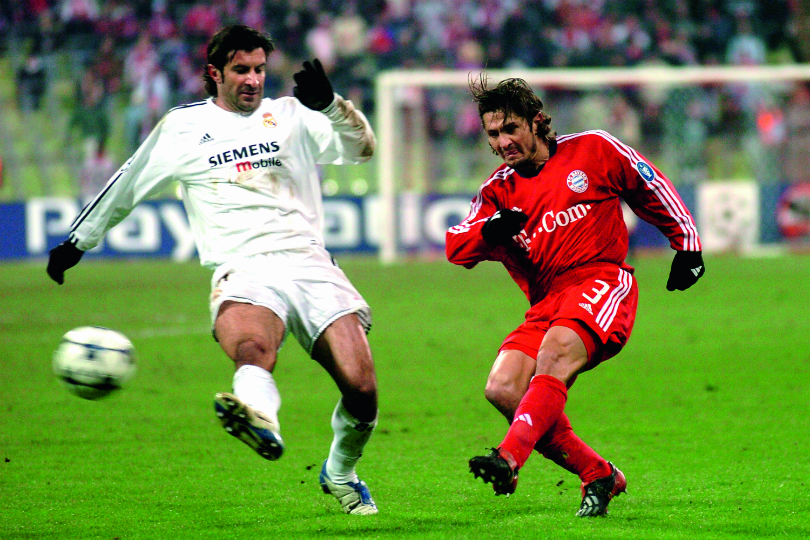
When you went back to Bayern, why did you wear the No.69 on your shirt? Were there jokes about that?
Andy Moody, Wrexham
Yes there were! It was because Lucio took the No.3, which was the shirt I’d usually wear. All of my best moments had come with that number, and I was thinking, ‘S**t, what number can I take?’ I don’t know why, but I had this crazy idea because I was born in 1969, I’m 1.69m and, well, my weight was not quite 69, it was about 74, but I said it was 69 and took the number for all of those reasons. Of course, people were thinking there was another reason… it was funny. Football should be funny.
What went wrong for France at the 2002 World Cup and at Euro 2004?
James Demarco, Stirling
It’s very difficult to stay right at the top for a long time. We stayed there for two competitions and Spain did it for three, but we saw what happened to them in 2014. For four years we were the best team in the world, which isn’t too bad. But you can have so much success that you get offers coming from everywhere, and sometimes you’ll lose a bit of your concentration and discipline.
The 2002 World Cup was the worst because we still had a very strong team, but didn’t manage to emulate the successes from 1998 and 2000 and say, ‘OK guys, now we’ve got to be more focused again, it’s another competition.’ We started badly, lost [to Senegal] in the first match and then you’re already trying to come back.
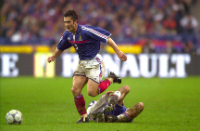
1992-2004 France (97 caps, 2 goals)
While you were working as a pundit for French TV, Patrice Evra called you a tramp. Why did he react so badly?
Mike Foden, Warrington
I’m not in Patrice’s brain and I don't want to be! He said what he said and it’s his problem. [FFT: He also said that you’d never been voted the best left-back in the world, even though you had been] I think he forgets, but I don’t forget and nor does anybody else. I won the four most important titles and that will never go away.
Who is your favourite modern-day left-back and who do you admire?
Jess Clapham White, via Facebook
David Alaba. It’s true that he played in a few different positions at Bayern under Pep Guardiola, and I also saw him playing in a different position for Austria at the Euros in France, but he has very strong potential. In Spain I've always liked Jordi Alba and I remember how fantastic he was at Euro 2012. But over the past 10 years the best full-back has been Philipp Lahm, who played on the right and left – such a clever player.
Is it true that as soon as you had retired from the game, you began to knock people out just for fun?
Shawn Armstrong, via Facebook
[Briefly looks a bit puzzled while FFT talks him through ‘knocking people out for fun’] Ah… I see, but jiu-jitsu is not just about punching people. It’s very technical and an interesting martial art. I have been doing it for 10 years now and I love it – it’s very good for fitness. The experience that I have now gained in martial arts would have really helped me as a defender in football, I’m sure, as you learn a lot about how to use the energy of the opponent to your advantage and how to position yourself to block them.
Did you actually become a European champion in jiu-jitsu? What did your opponents think when they realised they were facing a World Cup winner?
Greg Bruce, Wolverhampton
[Laughs] They wanted to kill me! I took part in three tournaments, and before one of them started, one of the guys was saying, “We will kill you.” But I still won the competition! I was a blue belt – it was the European Championship in my age group and the whole thing was such a crazy experience. There were 500 people there with hard faces because this is fighting, but it was lots of fun.
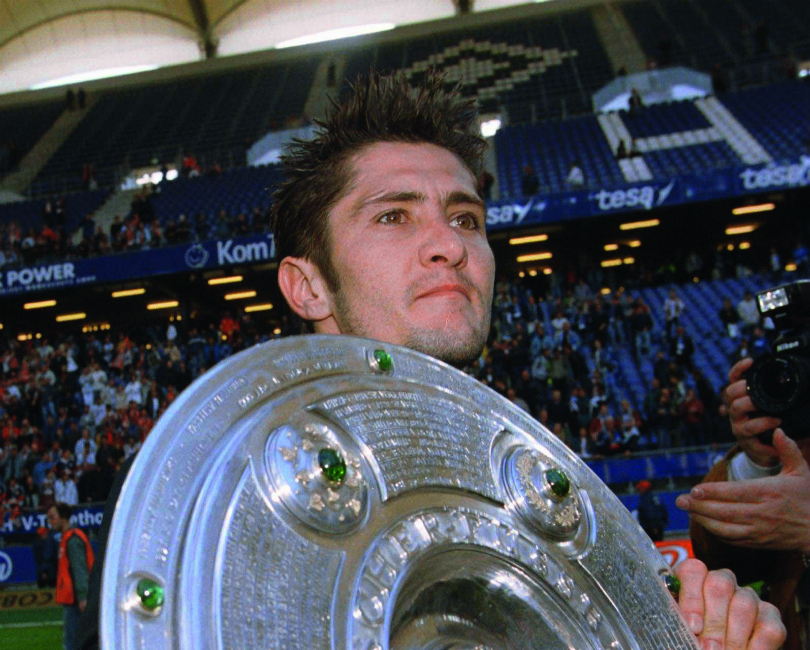
What are you doing in your role as ambassador with Bayern Munich?
Martin Weininger, Munich
Football is changing a lot – in my time playing for them, Bayern Munich was a German and a European brand, but now it is a worldwide brand like Adidas or Nike. Really, Barcelona, Real Madrid, Manchester United and Bayern Munich are the most powerful football clubs in the world in terms of what they have achieved in the history of football, the power they have today and the quality of their teams. So the marketing we do is not just in Germany, it’s everywhere.
I’m travelling to places in China, New York, South America and maybe Indonesia, too. We have got four ambassadors at the moment – me, Paul Breitner, Hasan Salihamidzic and Giovane Elber – and there might be some more as there is plenty of work to do. Bayern Munich is a special club with a family spirit – a Bavarian spirit – and though we are worldwide now, we have to keep those values. It’s an interesting job – I played for the club for nine years, so I love it.
If football is your first sporting love, which would you pick as your second favourite sport?
Des Goh, via Facebook
I love so many different sports. When I was younger I played tennis, football, surfing, skiing, sailing, rugby, handball, athletics and pelote basque – special sports from the Basque country. I liked to play everything. Sport used to be for competition but now it’s sport for living, to feel happy and connect with nature, surfing in Polynesia – you can’t imagine how beautiful it is. I will go skiing in the French Alps and cycling in the Pyrenees, – I’m interested in it all.
My problem is I’d like to have another 500 years to go and do what I want to do, but I know that’s not possible. I want to go all over the world, to surf or dive. I was recently in Polynesia diving with sharks – about 200 sharks all around me. It’s fantastic, you don’t have to be afraid. For me it’s impossible to stop doing sport. I’d like to be an athlete until the last moment.
This feature originally appeared in the August 2017 issue of FourFourTwo. Subscribe!
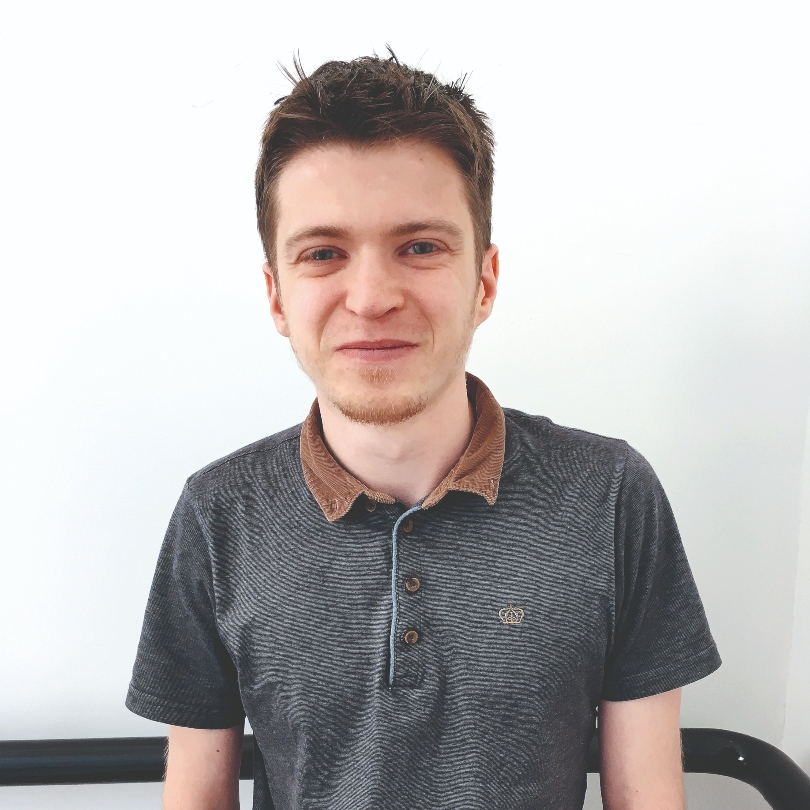
Chris joined FourFourTwo in 2015 and has reported from more than 20 countries, in places as varied as Ivory Coast and the Arctic Circle. He's interviewed Pele, Zlatan and Santa Claus (it's a long story), as well as covering the World Cup, AFCON and the Clasico. He previously spent 10 years as a newspaper journalist, and completed the 92 in 2017.
 Join The Club
Join The Club





